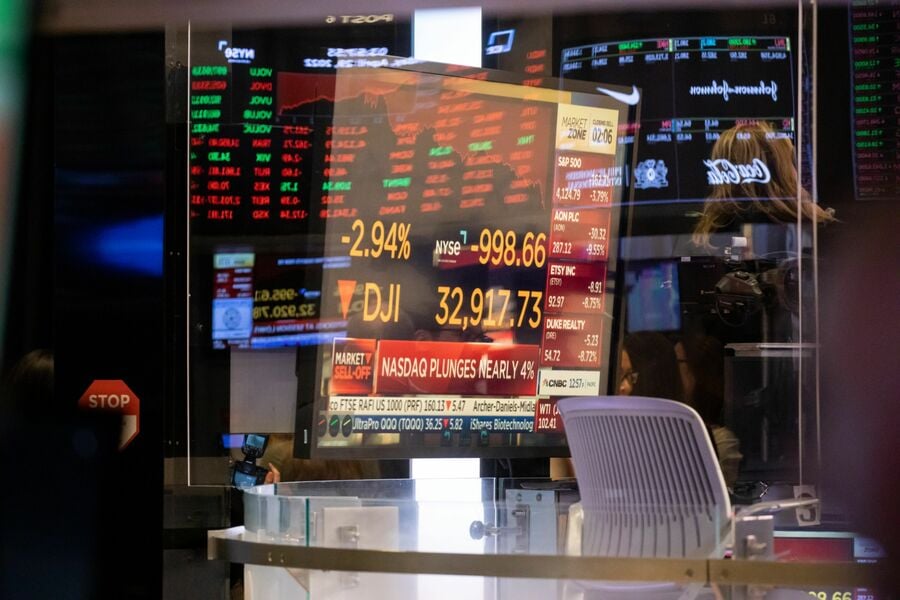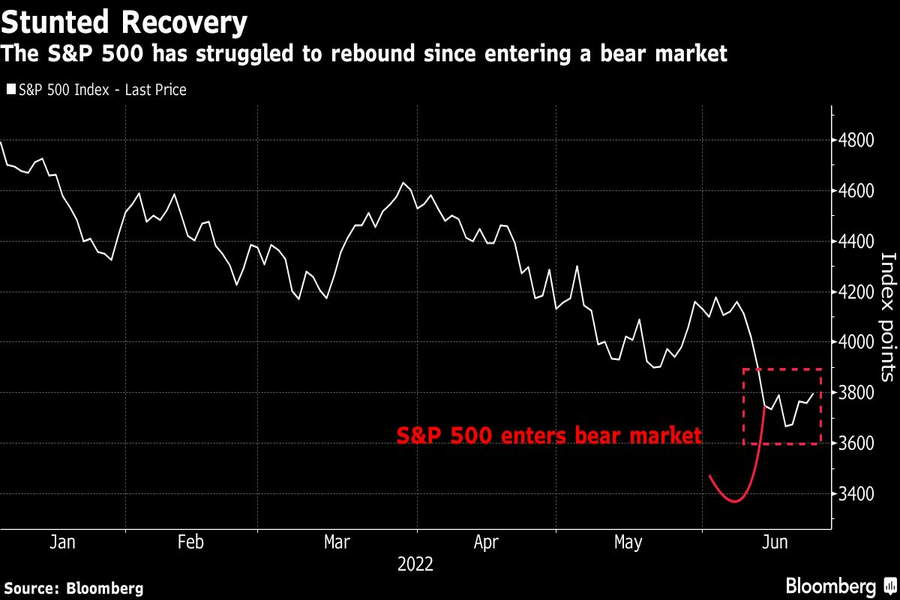

Global equity funds saw their biggest outflows in nine weeks as investors piled into cash amid fears that the U.S. economy could be headed for a recession.
About $16.8 billion exited global stock funds in the week through June 22, with U.S. equities seeing their first outflow in seven weeks at $17.4 billion, Bank of America Corp. said, citing EPFR Global data. Bonds saw redemptions of $23.5 billion, while investors moved $10.8 billion to cash and $0.6 billion to gold, the data show.
Bank of America’s custom bull and bear indicator remains at “maximum bearish,” strategists led by Michael Hartnett wrote in a note, which is a buy signal for stocks. For the year, investors have bought $195 billion of stocks and sold $193 billion of bonds, meaning capitulation has not been reached for equities, they said.
The U.S. stock market has struggled to meaningfully recover after it sank into a bear market last week, and the S&P 500 Index is still on track for its worst first half since 1970 amid fears of economic slowdown. Federal Reserve Chair Jerome Powell acknowledged this week that a soft economic landing was “very challenging.”

Despite the sell-off, strategists broadly believe equity markets haven’t seen a bottom. Hartnett said last week that based on past bear markets — defined as a 20% drop for the index from recent highs — the current one for the S&P 500 would end in October with the index at 3,000 points. That’s 21% below current levels.
Morgan Stanley strategist Michael J. Wilson also sees the index dropping to 3,000 to fully reflect the scale of economic contraction. And Societe Generale SA’s Manish Kabra said this week that a 1970’s style shock amid stagnation with higher inflation could send the index crashing more than 30% from current levels.
By trading style, U.S. small cap and large cap stocks led outflows. By sector, materials and energy saw the biggest redemptions. Technology, communication services and real estate had inflows.

A Texas-based bank selects Raymond James for a $605 million program, while an OSJ with Osaic lures a storied institution in Ohio from LPL.

The Treasury Secretary's suggestion that Trump Savings Accounts could be used as a "backdoor" drew sharp criticisms from AARP and Democratic lawmakers.

Changes in legislation or additional laws historically have created opportunities for the alternative investment marketplace to expand.

Wealth managers highlight strategies for clients trying to retire before 65 without running out of money.

Shares of the online brokerage jumped as it reported a surge in trading, counting crypto transactions, though analysts remained largely unmoved.
Orion's Tom Wilson on delivering coordinated, high-touch service in a world where returns alone no longer set you apart.
Barely a decade old, registered index-linked annuities have quickly surged in popularity, thanks to their unique blend of protection and growth potential—an appealing option for investors looking to chart a steadier course through today's choppy market waters, says Myles Lambert, Brighthouse Financial.
